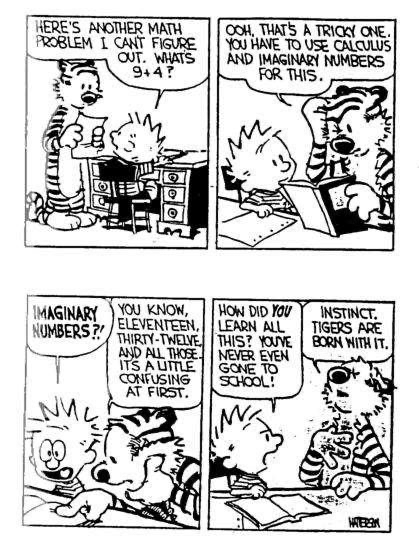It’s not even the picture, it’s the promise you own a picture
Imagine waving the receipt of your brand new TV you don’t have in your home around in public for prestige
It’s more like you have a receipt for a link of where to get the manual for the TV.
And the picture itself is just a randomly generated picture of a money or a picture of Donald Trump photoshopped into something from the first page of Google images.
Holding an NFT can give you ownership of an image. If you have a bored ape NFT you own some legal rights to the image.
That’s because of contract law, and IP law. A contract assigns the copyright to the holder of the NFT, and governments enforce legal contracts.
The only thing that gives NFTs any claim to value is the fact that a centralized authority can enforce it. The entire concept behind the decentralized leaderless authority of the blockchain is a myth.
Yeah you can own an NFT but you can own any image through a license agreement with the owner.
Yes… That’s the point of my comment.
Shes right an nft is a hallway to the picture. You don’t even own to picture
NFTs are just USED for pictures. They actually had potential to solve real world problems, but jetzt isch d Katz de Bååm nuff as we say in hohenlohe.
NFTs
Note: this is how you spell it. Apostrophes are for possession & contraction …not making words plural.
That’s not true. Apostrophes can be used to make acronyms plural, and there are cases where not doing so is clearly wrong (e.g. Oakland A’s)
No style guide says this. The only exception I have ever seen is single letters, and even that is up to interpretation.
That’s not true, clearly an apostrophe means: “watch out, here comes an s!”
What about for the Goa’uld?
Cryptobros incoming to tell us all the real-world problems blockchain’s going to solve any day now in 3… 2…
I got 99 problems, but a blockchain solves none
FWIW nobody who is actually knowledgeable about crypto ever thought anything positive about NFTs. It’s all just wallstreetbets types who read one article and think they’re economists now. The tech is interesting and has applications but monkey jpegs are what idiots spent millions on for some reason.
People who are knowledgeable about crypto spent real money on a thing called dogecoin.
Nobody who is knowledgeable about crypto ever thought dogecoin was anything but a meme coin or pump and dump scheme. They would have known it offered zero benefits technologically over existing cryptos. Some may have bought it to cash in on the crazy market surrounding it, but they never thought doge was the future or anything. The people who thought that were the “i read one article and I’m a crypto expert now” crowd referenced in my original comment.
I viewed it as more of a donation to see the stupid meme on Nascar or other dumb sponsorships.
I think the entire boom it had was from regular people, people who specifically weren’t knowledgeable about crypto.
Exactly. Same with NFTs
The same will happen any time a “get rich quick” scheme comes around. People saw things going up 100% in price from one day to the next, compared to a 2% per year savings account. That’s very enticing for anyone.
This one was at an impressive scale though. Probably because it was so accessible. I’d have my BIL in South America telling me he’s playing a game that mines some random coin. Can’t really say much other than to be sceptical and never risk more than you can afford to lose.
I think NFT’s had some promise for stuff you actually have to own (not some ape pictures). Like a digital version for maybe an invitation or tickets or if done properly (by your countries government for example) maybe even for stuff like licenses (i.e. driving license, welding license etc.) Or identification (passport, id, etc.)
For government documents you need nothing but a plain old certificate to create a digital signature. If there is a single instance of trust (such as a government) there absolutely no point in using a blockchain.
Decentral NFTs for concert tickets would only make sense if you were looking for a solution to liberate the second market, i.e. people selling tickets to other people without involvement of the host of the concert. Such a model is neither beneficial for the hosts (as they wouldn’t benefit from the second market sales) nor the visitors (as the second market typically leads to even higher prices). If you meant a way to return/trade tickets on a platform controlled by the host / the original issuer of the tickets, then there’s again no need at all for crypto aside plain old, stupid certificates.
Even in single instances of trust there can be advantages to using blockchain for those applications:
- Decentralization can give you better uptime/availability of those documents. If the DMVs website or authentication service goes down, documents can still be authenticated since they and/or their signatures stored in a distributed manner. The internet can go down at your bar but if you have a recent copy of a chain, you can still verify somebody’s ID.
- It can make them easier to transfer between parties, and creates a digital “paper trail” which can conform to whatever requirements one might have. For example, you could easily require several parties to sign off any time the document is moved or assigned to a new person.
- You can use those documents and their signatures with smart contracts or other decentralized apps. For example, you could sign up for an account at a bank or a platform like eBay using your NFT’d digital ID and the bank could accept it would needing to manually verify if the id “looks fake” or if your blurry phone picture is going to cut it. They don’t have to call up the government and ask them to verify it or pay some third party to match your address against their database of known people, etc.
- Maybe you need better transparency in how many documents are issued and (potentially) to whom. Voting systems, for example, are a use case for this. It could be used for shareholder governance structures, etc.
- Blockchains can enforce rules which centralized entities can’t, which is important to consider. An example of how this is useful: imagine the government has a digital ID system and it’s run in a centralized fashion, which makes sense, because they are the issuing authority right? Now imagine that centralized system gets hacked and an attacker starts printing and authenticating a bunch of fake ID requests. In the time between when this attack happens and when somebody figures it out, which could be hours to days, banks and other entities could be relying on those fake documents and potentially lose millions. An example of a rule a blockchain can enforce is “this ID issuing authority cannot issue in a single day more than 10% above it’s daily average of issuances over a six month period”, limiting the scope of an attack. One may say “Well, but blockchain can be hacked too!” which is true, but it’s less likely because the software for these networks has thousands of eyes on it whereas there may only be a couple system admins approving changes to your state-run ID database. Open source software is more secure than proprietary for this reason. Additionally, a security flaw needs to effect 51% of the network which isn’t likely to happen when you have a diversity of software versions.
- Many smart contracts need ways to protect against sybil attacks (ie one person pretending to be multiple). Quadratic funding being used for charity fundraising is a perfect example. By using credentials issued on chain by centralized authorities, they can verify a person is not multiple people. Quadratic funding is an awesome way to fund public goods.
Every single one of the examples you gave relies on some single centralized authority to give it value. Passports and licences are meaningless without a government. Tickets rely on the venue.
I have not heard anyone mention any application for NFTs that would work better than a database run by the agency that is required to give the document value.
Blockchain is a solution in search of a problem.
The problem IS the centralized authority. Can you forever trust a government to not artificially inflate or deflate the value of a currency? The whole point was to have a system with no single authority. No single point of failure.
It is, however, not perfect. The volatility, limited number of transacrions per second , and reliance on an incredible amount of energy expense were the largest of these when the original bitcoin concept was created. Some of these issues have solutions, but its still an evolving technology.
I personally view crypto and the crypto boom as an experiment in unfettered capitalism - it’s still a new technology, the governments haven’t caught up to it yet so no regulations, yet quite literally 99% of crypto usage was in trying to take advantage of others (scams) and speculation.
The only thing with actual value that came out of crypto was probably Monero, which allowed for completely anonymous payments, something that crypto, when paired with crypto exchanges, is bad at.
That being if you can get yourself some Monero anonymously. I can see valid use cases for that, for example in the drug busines…
No they aren’t NFTs are recipts. That is all they are. They can have a connection to images or physical goods but they only proove that you bought a recipt and not actual ownership.
I was pretty shocked when I found out that NFT pictures aren’t even stored in the block chain. NFTs are just records on the block chain with links to images stored on ordinary servers.
This is because you (in theory) need the whole blockchain to validate an NFT, so you want to keep it as small as possible.
But since you store the Cryptographic Hash of the image too, you can validate that the image on the server is actually the same one referenced by the blockchain. You could even move it to another server, but it will break the link obviously
NFT’S
Stay in school, kids.

I think it defies the concept of property in its core.
Actually NFTs aren’t even pictures xD
Imagine buying a hyperlink 😭
Nope! Not even that. Just an agreement between the scam arti- sorry, seller and the dumbfuc- sorry, buyer, that the rights to something have changed hands. Nothing more, nothing less.
Hey, domain names are a thing you know
Hey at least then you own a domain name and all of its subdomains and can make them point whatever you want and host whatever you want out of them. When you buy an NFT you own one URL on an image hosting site, whose content you don’t even control.
They’re not even pictures. They’re hyperlinks to pictures that may or may not even be there.
Famously, it’s uncommon that your “NFT” ends up hyperlinking to a picture of a rug because the people running it know it’s a scam.
They are actually not hyperlinks, more like certificares of ownership over a picture (or a “token”, as the name suggests)
Go away, feddit de you never have anything useful to say
Oh yes, generalizing. At least you didnt write any racist jokes (yet)…
The Mona Lisa is just a canvas with paint on it
You forgot the part that it is 500 years old and made by a significant historical figure.
So if an NFT was 500 years old and made by Obama then it would be the same?









